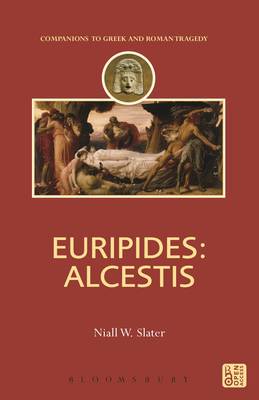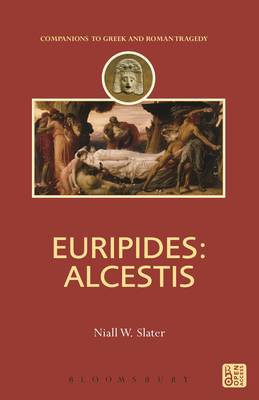
- Afhalen na 1 uur in een winkel met voorraad
- Gratis thuislevering in België vanaf € 30
- Ruim aanbod met 7 miljoen producten
- Afhalen na 1 uur in een winkel met voorraad
- Gratis thuislevering in België vanaf € 30
- Ruim aanbod met 7 miljoen producten
Zoeken
€ 228,95
+ 457 punten
Uitvoering
Omschrijving
In the Alcestis, the title character sacrifices her own life to save that of her husband, Admetus, when he is presented with the opportunity to have someone die in his place. Alcestis compresses within itself both tragedy and its apparent reversal, staging in the process fascinating questions about gender roles, family loyalties, the nature of heroism, and the role of commemoration.
Alcestis is Euripides's earliest complete work and his only surviving play from the period preceding the outbreak of the Peloponnesian War. Currently dominant post-structuralist models of Greek tragedy focus on its 'oppositional' role in the discourse of war and public values. This study challenges not only this politicised model of tragic discourse but also both traditional masculinist and more recent feminist readings of the discourse and performance of gender in this remarkable play.
The play survived in the performance repertoire of antiquity into the Roman period. Euripides' version strongly influenced the reception of the myth through the middles ages into the Renaissance, and the story enjoyed a lively afterlife through opera. Alcestis' contested reception in the last two centuries charts our changing understanding of tragedy.
Niall Slater's study explores the reception and afterlife of the play, as well as its main themes, the myth before the play, the play's historical and social context and the central developments in modern criticism.
Alcestis is Euripides's earliest complete work and his only surviving play from the period preceding the outbreak of the Peloponnesian War. Currently dominant post-structuralist models of Greek tragedy focus on its 'oppositional' role in the discourse of war and public values. This study challenges not only this politicised model of tragic discourse but also both traditional masculinist and more recent feminist readings of the discourse and performance of gender in this remarkable play.
The play survived in the performance repertoire of antiquity into the Roman period. Euripides' version strongly influenced the reception of the myth through the middles ages into the Renaissance, and the story enjoyed a lively afterlife through opera. Alcestis' contested reception in the last two centuries charts our changing understanding of tragedy.
Niall Slater's study explores the reception and afterlife of the play, as well as its main themes, the myth before the play, the play's historical and social context and the central developments in modern criticism.
Specificaties
Betrokkenen
- Auteur(s):
- Uitgeverij:
Inhoud
- Aantal bladzijden:
- 152
- Taal:
- Engels
- Reeks:
Eigenschappen
- Productcode (EAN):
- 9781780934723
- Verschijningsdatum:
- 7/11/2013
- Uitvoering:
- Hardcover
- Formaat:
- Genaaid
- Afmetingen:
- 137 mm x 218 mm
- Gewicht:
- 294 g

Alleen bij Standaard Boekhandel
+ 457 punten op je klantenkaart van Standaard Boekhandel
Beoordelingen
We publiceren alleen reviews die voldoen aan de voorwaarden voor reviews. Bekijk onze voorwaarden voor reviews.







